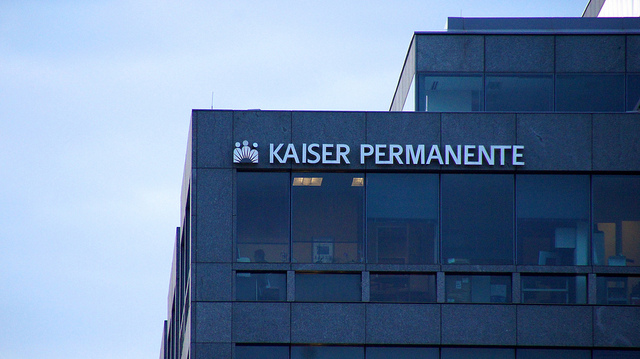
Members of the California Nurses Association reached a tentative agreement with Kaiser Permanente on Thursday, averting what would have been the biggest private sector nurses strike in American history.
More than 21,000 registered nurses and nurse practitioners across 21 of Kaiser’s facilities in Northern California had planned to begin a two-day strike next Monday. These nurses and nurse practitioners have been in negotiations since June. In September, about 1,000 nurses at Kaiser’s Los Angeles Medical Center joined their Northern California nurse colleagues.
Union members who work at Kaiser’s Northern California facilities will vote to ratify the new contract over the next few weeks. Nurses who work at Kaiser’s Los Angeles Medical Center reached a tentative agreement as well, which they will vote to approve next Tuesday.
The new four-year contract is a “huge win” for Kaiser’s nurses, according to Cathy Kennedy, who is the president of the California Nurses Association and a nurse in the neonatal intensive care unit at Kaiser’s medical center in Roseville.
The new four-year contract gives Kaiser’s nurses a “great” economic package that accounts for inflation, Kennedy said in an interview.
Kaiser is increasing wages for its Northern California nurses by 22.5% over the life of the contract. This agreement “is driven by the changing economy, including inflation, significant changes in the marketplace and our commitment to providing our employees with excellent pay and benefits to attract and retain the best nurses,” Kaiser said in a statement it shared with MedCity News.

A Deep-dive Into Specialty Pharma
A specialty drug is a class of prescription medications used to treat complex, chronic or rare medical conditions. Although this classification was originally intended to define the treatment of rare, also termed “orphan” diseases, affecting fewer than 200,000 people in the US, more recently, specialty drugs have emerged as the cornerstone of treatment for chronic and complex diseases such as cancer, autoimmune conditions, diabetes, hepatitis C, and HIV/AIDS.
To provide relief for nurses amid staffing shortages, the contract promises to increase Kaiser’s nurse staffing in Northern California by more than 2,000 more nurses. Additionally, the agreement increases tuition reimbursement for nurses’ continuing education, gives assurance that Kaiser will maintain a three-month stockpile of personal protective equipment, and expands workplace violence prevention plans to all facilities.
Kennedy also flagged the significance of the agreement’s provisions for equity and inclusion, as well as its patient-first language.
Under the new contract, Kaiser will create a new regional committee for equity, diversity and inclusion composed of two nurses from each facility. The committee will “bring nurses to the table” to address systematic racism within the healthcare system, according to Kennedy.
She commended the agreement’s patient-first language, which includes the assertion that healthcare is a human right. The contract also states that racial and ethnic disparities in healthcare outcomes must be ended, culturally competent care delivery should be promoted, and the diversity of the country’s healthcare workforce should be expanded.
The health system said that it is “proud of the work our nurses do and we are making sure Kaiser Permanente continues to be the best place to work for our valued nurses.”
The agreement comes less than a month after Kaiser’s mental health workers in Northern California approved a four-year contract following a 10-week strike.
Photo: flickr user Ted Eytan














